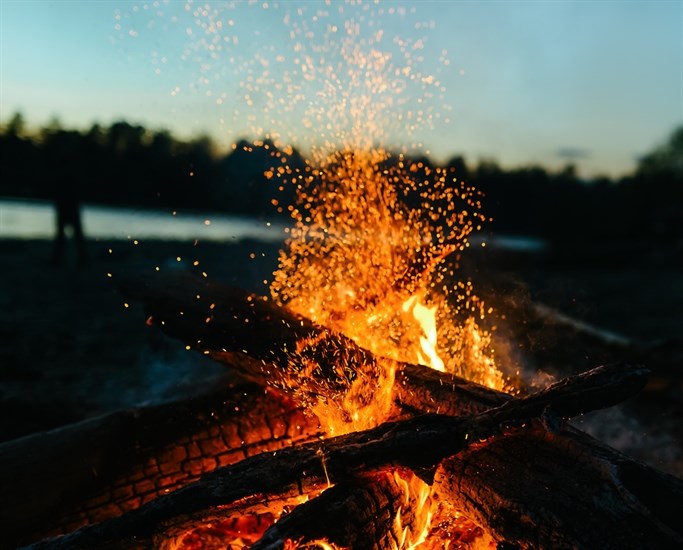
Image Credit: Shutterstock
August 02, 2018 - 1:35 PM
Just because there is a campfire ban in place for much of B.C. it doesn't mean you need to say goodbye to campfires all together.
Ryan Turcot, a fire information officer with B.C. Wildfire, says there are a number of things that get prohibited once a campfire ban is put in place, but options like portable fire pits and campfire cooking stoves aren't necessarily off the table.
"So basically when we implement a campfire ban, the ban doesn’t apply to ULC- or CSA-rated cooking stoves or portable campfire apparatuses," Turcot says.
Underwriters Laboratories of Canada, or ULC, develops standards and specifications for products having a bearing on fire, life safety and security, crime prevention and energy efficiency among other things. These standards are accredited by the Standards Council of Canada.
The Canadian Standards Association, or CSA, has a similar mission of putting out standards to help mitigate risks for all sorts of apparatuses.
So long as your camping equipment is CSA- or ULC-rated, you're allowed to use it during a campfire ban as long as any potential flame is less than 15 centimetres, Turcot says. This includes equipment like propane fire pits and camping stoves. Before you purchase something to use in place of a campfire this summer, check to make sure there are either of the two ratings labeled on the apparatus.
Turcot adds that things like tiki torches, and fireworks are usually restricted around the same time a campfire ban is put in place.
"I guess you could say they pose a comparable amount of risk in terms of their potential to start fires," Turcot says. "When we implement campfire bans, that means just looking at varying conditions and factors within a region, if the fire risk is high enough that the B.C. Wildfire Service believes that a campfire ban should be put in place, we will implement one."
By the time a category two ban is put in place, which prohibits open burning, Turcot says that typically means things like sky lanterns, exploding binary targets, and fireworks will have already been prohibited.
"I would just say especially at this time of year it's really important that folks know before they go," Turcot says. "Understand what the prohibitions are, prohibitions that B.C. Wildfire Service puts in place do apply to all public and private land unless specified otherwise."
Sometimes there are things that can be a grey area when it comes to finding a safer alternative to campfires, Turcot says. The wildfire service has seen things like instant campfires, different types of burners and stilts, but if it doesn't have the proper rating, you can't use it.
And if you're ever in doubt about what you can and can't use during a campfire ban, Turcot says never hesitate to ask the wildfire service, adding that it's better to be safe than sorry.
You can reach the B.C. Wildfire Service at 1-888-336-7378.
Go here for current fire bans and restrictions in your area.
Go here to learn more about what you can and can't use during a campfire ban.
— This story was updated at 3:50 p.m. Thursday, Aug. 2, 2018 to correct a sentence which originally read that off-road activities were usually restricted at the same time as fireworks and tiki torches.
To contact a reporter for this story, email Ashley Legassic or email the editor. You can also submit photos, videos or news tips to the newsroom and be entered to win a monthly prize draw.
We welcome your comments and opinions on our stories but play nice. We won't censor or delete comments unless they contain off-topic statements or links, unnecessary vulgarity, false facts, spam or obviously fake profiles. If you have any concerns about what you see in comments, email the editor in the link above.
News from © iNFOnews, 2018